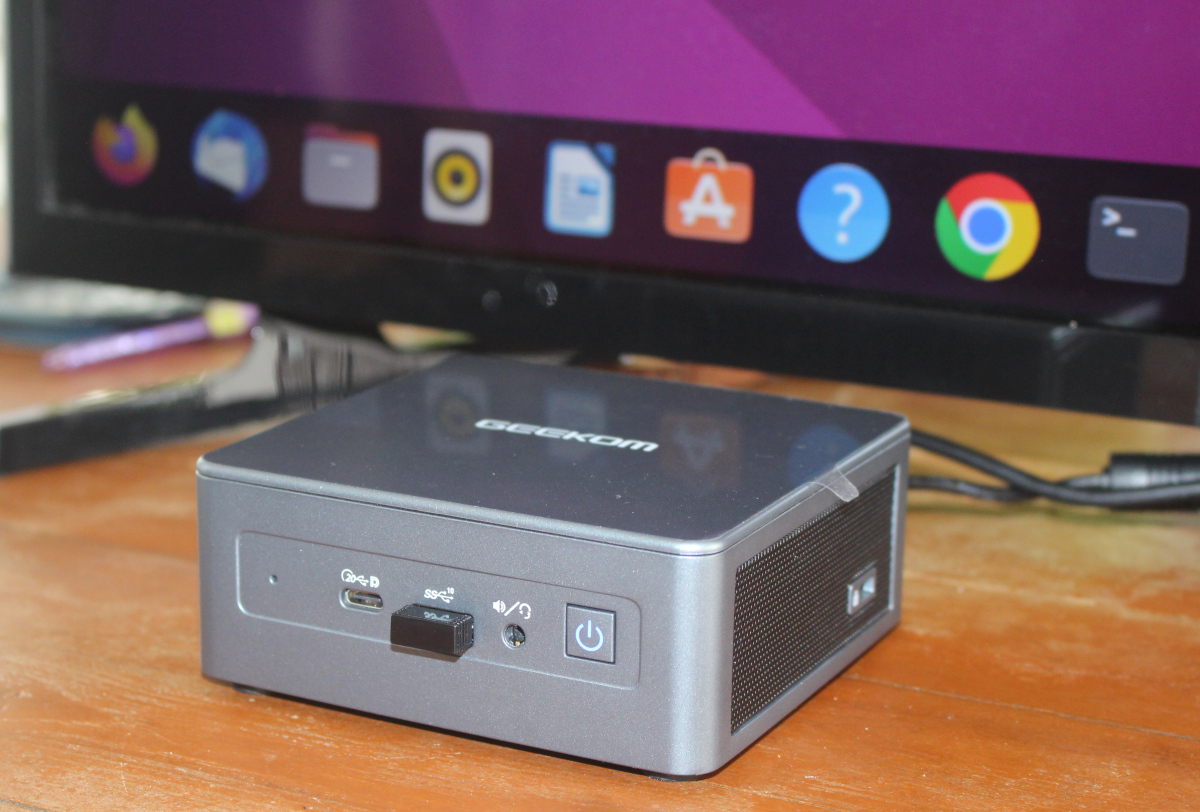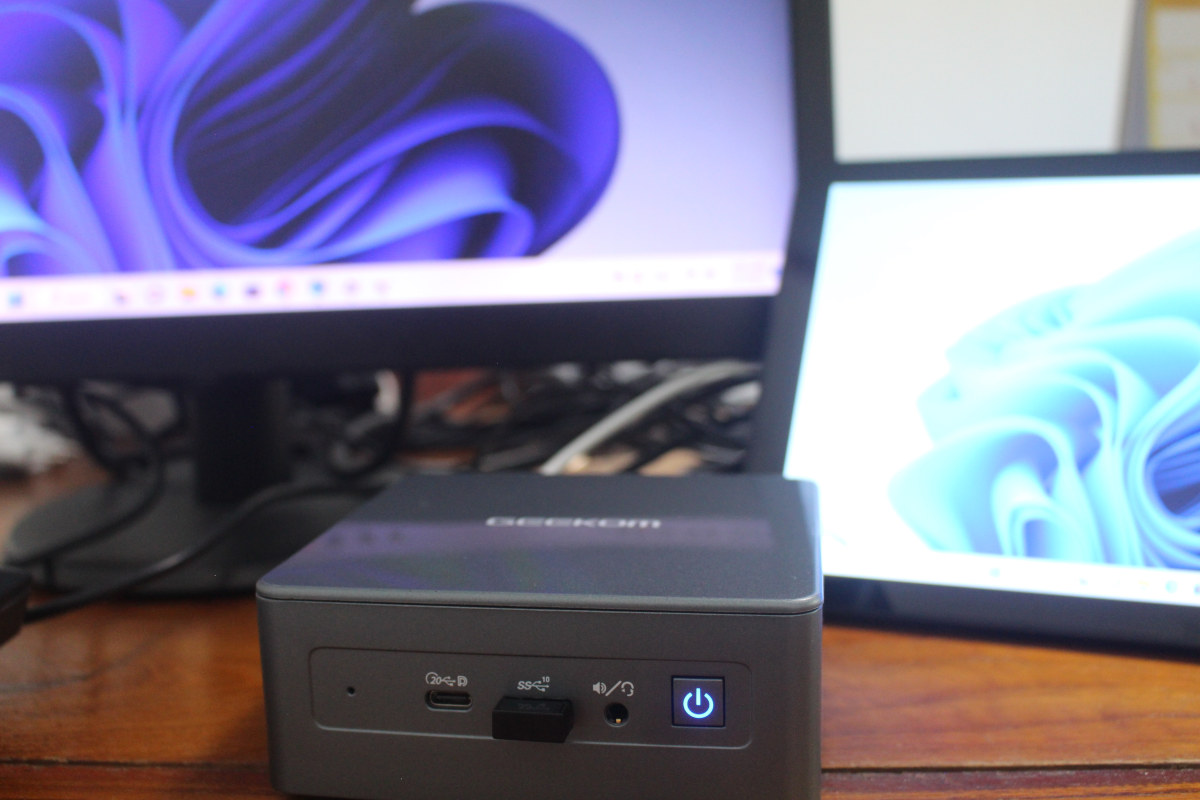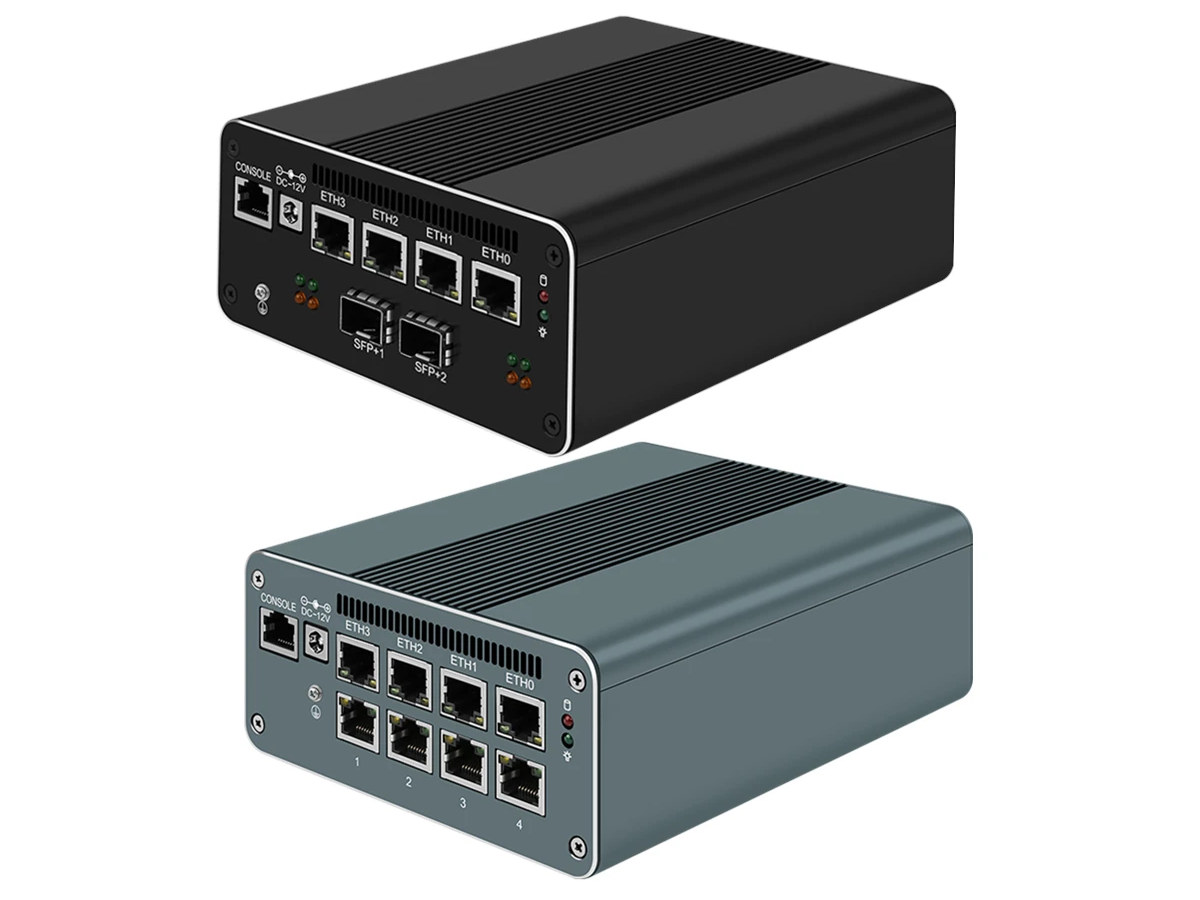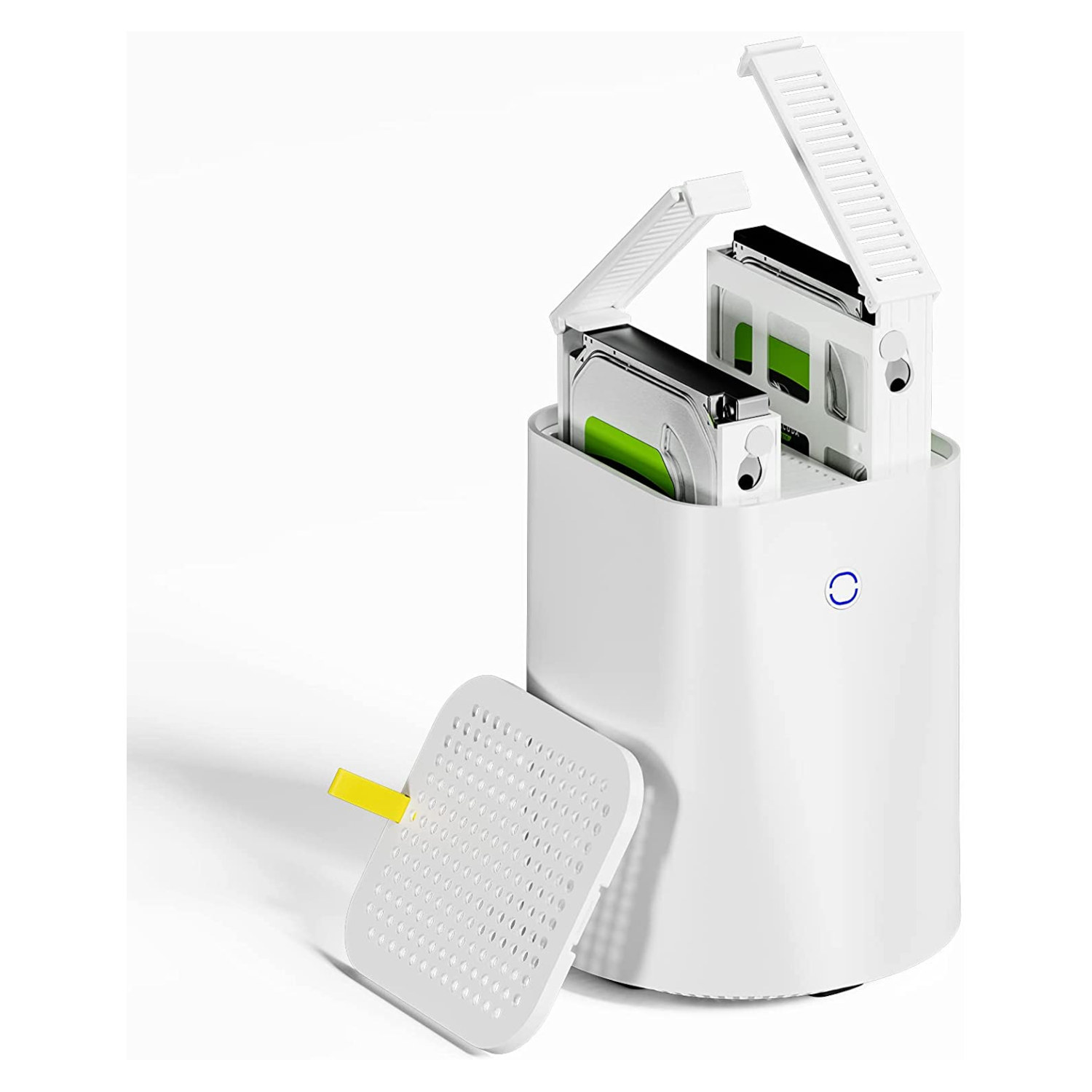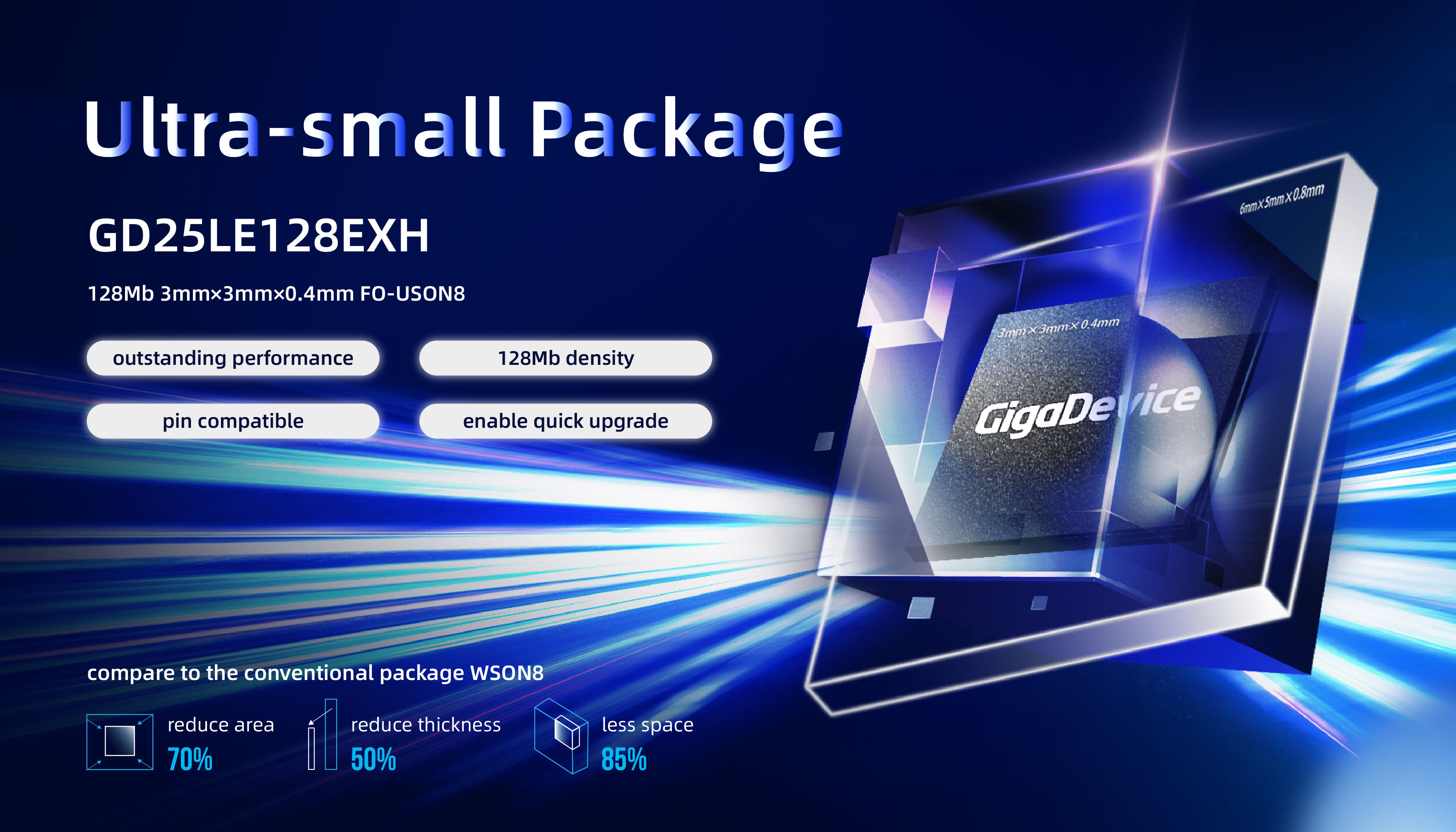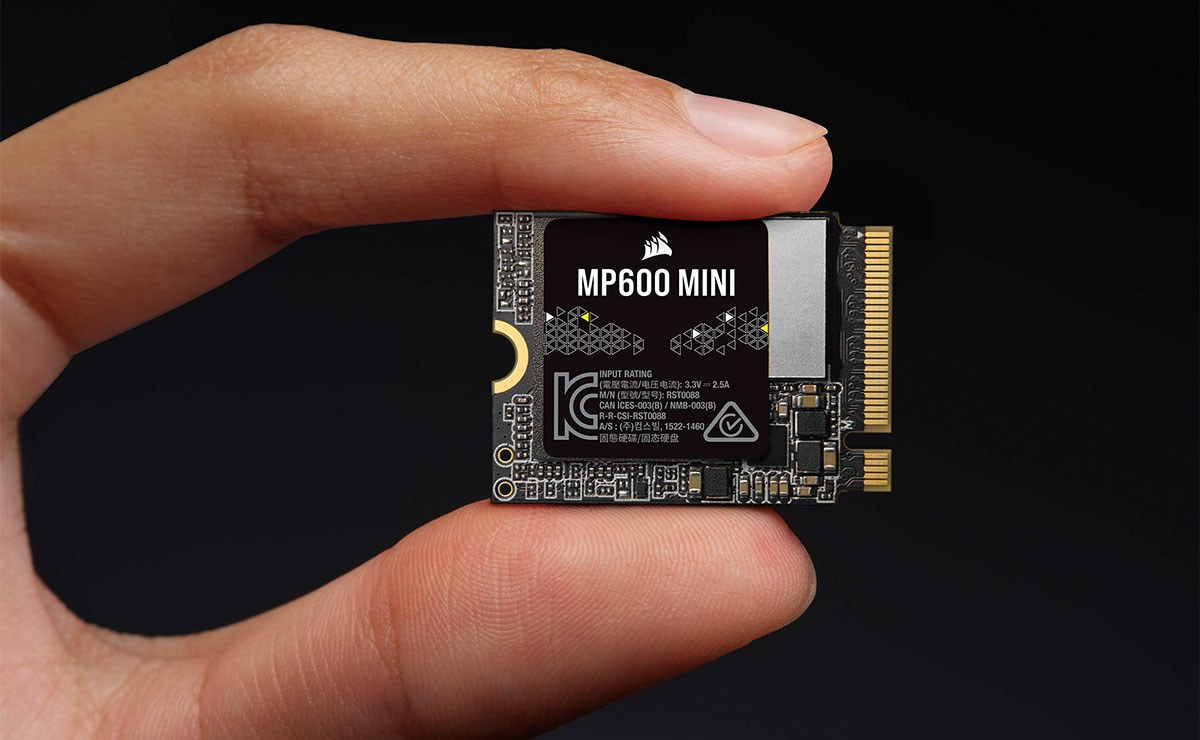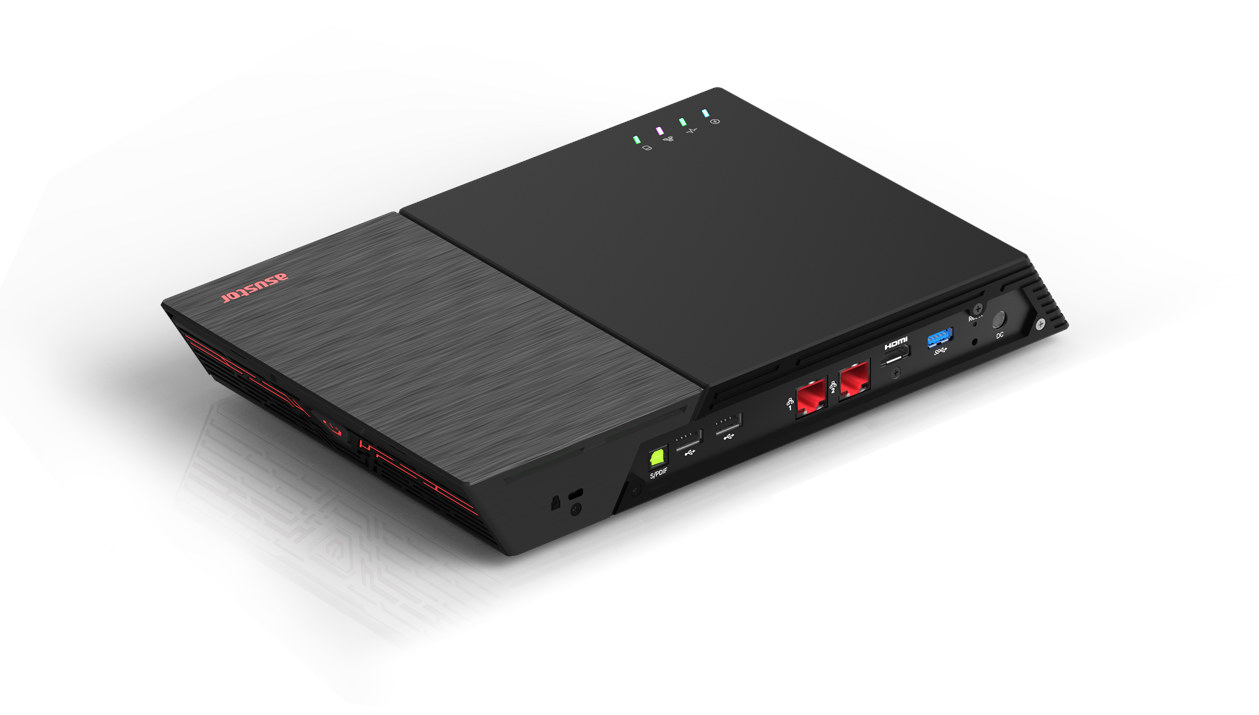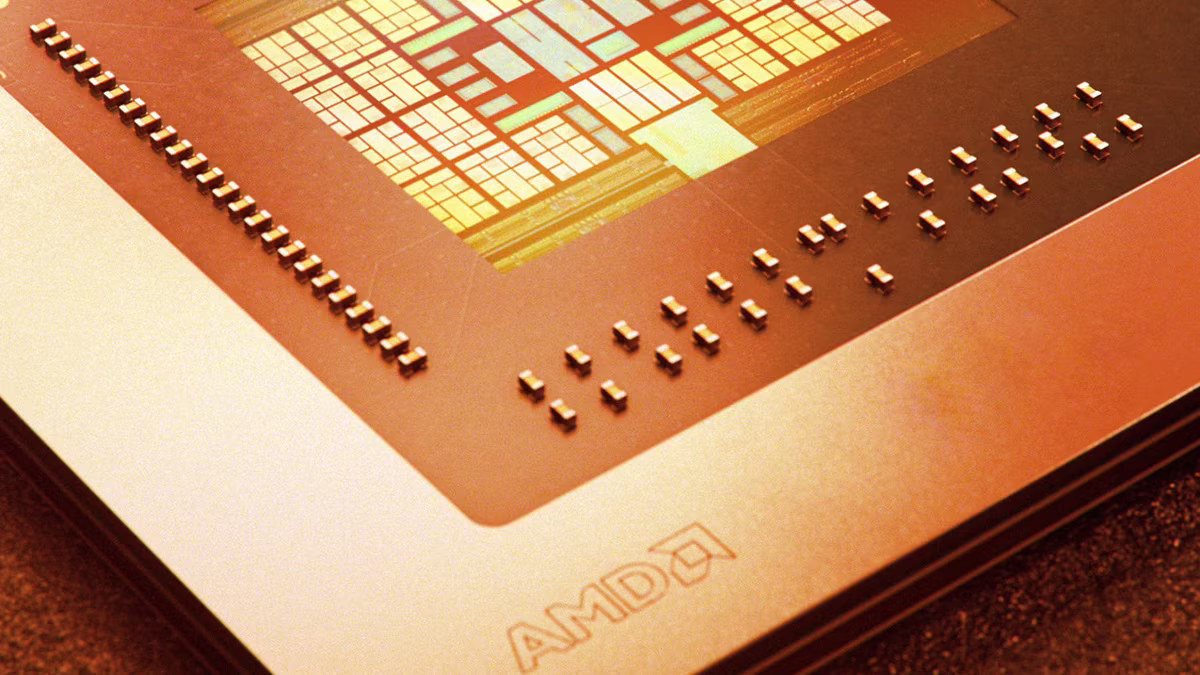We’ve already reviewed GEEKOM Mini IT11 (Core i7-11390H) mini PC with Windows 11 Pro, so in the final part of the review, we’ve switched to Ubuntu 22.04 Linux operating system installed alongside Windows 11 on the Intel Core i7-11390H Tiger Lake mini PC. We’ll go through the software overview and test hardware features, run some benchmarks to evaluate the performance of the system, and report our findings with regard to power consumption and thermal performance. We’ve resized the partition in Windows 11 in the Disk Management program in order to install Ubuntu 22.04 from a USB flash drive on the Mini IT11 computer, and the installation went smoothly, and surprisingly fast according to the reviewer. Ubuntu 22.04 system information The About section in Ubuntu 22.04 Settings shows the Mini IT11 mini PC comes with an 11th Gen Intel Core i7-11390H CPU with eight threads clocked at 3.4 GHz and Intel […]
GEEKOM MINI IT11 Review – Part 2: Windows 11 Pro on an Intel Core i7-11390H mini PC
We’ve previously checked out GEEKOM Mini IT11’s hardware and accessories with some specs, an unboxing, a teardown, and a first boot of the Intel Core i7-11390H mini PC in the first part of the review. We’ve now had time to thoroughly test the Tiger Lake mini PC with Windows 11 Pro, and we’ll go through a software overview, benchmarks, power consumption, and more in the second part of the review. Software overview GEEKOM Mini IT11 (Core i7-11390H) mini PC ships with Windows 11 Pro version 21H2 OS build 22000.1219. We can further confirm the specifications with the HWiNFO64 program to show the system is based on an Intel Core i7-11390H with four cores and eight threads and Intel Iris Xe Graphics and comes with 32GB dual-channel DDR4 memory, and a 1TB NVMe SSD. The Western Digital hard drive we added to the mini PC also shows up in the list […]
Intel soft router offers up to eight 2.5GbE ports, Comet Lake or Whiskey Lake Core processor
Topton is offering a soft router powered by an Intel Whiskey Lake or Comet Lake processor up to the Core i7-10510U quad-core/octa-thread processor with either eight 2.5GbE RJ45 ports or four 2.5GbE RJ45 ports and two 10GbE SFP+ cages. We’ve previously written about the low-cost InuoMicro G4305L8-S2 fanless industrial PC box with eight 2.5GbE interfaces, but it is powered by an Intel Celeron 4305UE dual-core Whiskey Lake processor, and the Topton model should offer more performance with a choice of 8th or 10th generation Intel Core i3/i5/i7 Whiskey Lake or Comet Lake SoC. Specifications: SoC (one or the other) Intel Core i3-8145UE dual-core Whiskey Lake processor up to 3.90 GHz with Intel UHD Graphics 620; 15W TDP Intel Core i5-10210U quad-core/eight-thread Comet Lake processor @ 1.6 GHz / 3.9 GHz (turbo all cores) / 4.2 GHz (turbo one core), 24EU Intel UHD graphics; 6MB Cache; 15W TDP Intel Core i7-10510U […]
AOOSTAR AMD Ryzen 5 mini PC also works as a two-bay NAS and 2.5GbE router
AOOSTAR mini PC is a 3-in-1 AMD Ryzen 5 5500U mini PC with two 3.5-inch SATA bays making it usable as a NAS, and two 2.5GbE networking interfaces to use the mini PC as a software 2.5GbE router that has recently shown up on Amazon for $399. The mini PC ships with a 512GB NVMe SSD preloaded with Windows 11 by default, as well as 16GB DDR4 memory. It can drive up to three independent 4K displays using HDMI, DisplayPort, and USB-C ports, and comes with five USB ports including one 10 Gbps USB Type-C port. AOOSTAR mini PC specifications: SoC – AMD Ryzen 5 5500U hexa-core-12-thread processor @ up to 4.0GHz with AMD Radeon Graphics; TDP: 10-25W System Memory – 16GB DDR4, upgradeable up to 64GB DDR4 3200MHz (2x 32GB running in dual-channel mode) Storage 512GB M.2 NVMe SSD, 1x extra M.2 NVMe SSD socket 2-bay NAS compatible with […]
Gigadevice GD25LE128EXH is a tiny 3x3mm 128Mbit SPI NOR flash
GigaDevice Semiconductor has just launched the GD25LE128EXH 128Mbit SPI NOR Flash in a tiny ultra-compact 3x3x0.4mm FO-USON8 package designed for IoT, wearables, healthcare, and networking products. The GD25LE128EXH supports up to 133MHz frequency with four channels delivering up to 532Mbit/s data throughput. GigaDevice also highlights the low power consumption of just 6mA when reading, or a reduction of power consumption by 45% compared to previous devices. GD25LE128EXH specifications: Density – 128Mb I/O Bus – Single I/O, Dual I/O, Quad I/O, QPI Frequency – 133 MHz (x1 x2 x4) Features H/W RESET WP# Security Registers with OTP Locks Suspend Unique ID HOLD# Voltage – 1.65V~2.0V Package – FO-USON8 3x3mm Temperature Range – -40°C~85°C; -40°C~105°C, or -40°C~125°C The GD25LE128E SPI flash is also available in SOP8 208mil, USON8 4x4mm, WSON8 6x5mm, WSON8 8x6mm, and WLCSP (4-4 ball array) packages, which means the GD25LE128EXH’s FO-USON8 package reduces area by 70% and thickness by […]
Corsair MP600 Mini M.2 2230 NVMe SSD delivers up to 4800 MB/s read/write performance
Corsair MP600 Mini is a high-performance M.2 2230 SSD based on the Phison E21T controller that delivers up to 4800MB/s sequential read and write performance and designed to be used in Valve’s Steam Deck, Microsoft’s Surface Pro 8 and 9, and other products that won’t take a M.2 2280 SSD. We are seeing more and more single board computers and other electronics products use M.2 sockets for storage, but the smaller boards won’t take the traditional M.2 2280 SSDs that usually deliver better performance than smaller M.2 2230/2242/2260 drives, and so performance may be impacted on this type of hardware. But the Corsair MP600 Mini changes that with high sequential and random read/write performance. Corsair MP600 Mini specifications: SSD Unformatted Capacity – 1TB NAND Technology – 3D TLC NAND Host interface – PCIe Gen 4.0 x4 Performance Max Sequential Read – Up to 4,800MB/s tested with CrystalDiskMark (CDM) Max Sequential […]
ASUSTOR FLASHSTOR NAS supports up to 12 M.2 SSDs, 10GbE networking
ASUSTOR FLASHSTOR 6 and FLASHSTOR 12 are network access storage (NAS) devices powered by a quad-core Intel Celeron N5095 Jasper Lake processor and designed for respectively 4K audio and video content consumption for the former and 4K video editing for the latter. Both models come with 4 GB of DDR4-2933, two USB 3.2 Gen 2×1 ports, and HDMI 2.0b video output, but the FLASHSTOR 6 supports up to 6 M.2 NVMe SSDs and 2.5GbE networking, while the FLASHSTOR 12 can take up to 12 M.2 NVMe SSDs and handles 10GbE networking. ASUSTOR FLASHSTOR specifications: SoC – Intel Celeron N5105 quad-core Jasper Lake processor @ 2.0 GHz / 2.9 GHz (Turbo) System Memory – 4GB SO-DIMM DDR4, expandable up to 16GB via 2x SO-DIMM slots Storage 8GB eMMC flash for the OS FLASHSTOR 6 (FS6706T) – 6x M.2 2280 NVMe drive slots, up to 14x drives with AS6004U expansion unit for […]
AMD Ryzen Embedded 5000 processors launched for networking applications
We first spotted the AMD Ryzen Embedded 5000 processors in a micro-ATX motherboard last August, but AMD has now only announced the availability the of Ryzen Embedded 5000 Series “Zen 3” processors designed for “always on” networking firewalls, network-attached storage systems, and other security applications. AMD also mentions the Ryzen Embedded 5000 are “power-efficient processors”, but that does not mean low power, as those embedded processors are 65 to 105W parts, and offer a step-up in performance from the 10 to 54W AMD Ryzen Embedded V3000 processors also targetting networking and storage applications. As we found out last year, four SKUs are available with the Ryzen 5950E, Ryzen 5900E, Ryzen 5800E, and Ryzen 5600E, but the specifications are a little different, as for instance, there’s no 10-core part. All four are AM4-socket processors, support two DDR4 channels up to 3200MT/s, and come with 24 PCIe Gen4 lanes, and when optionally […]


